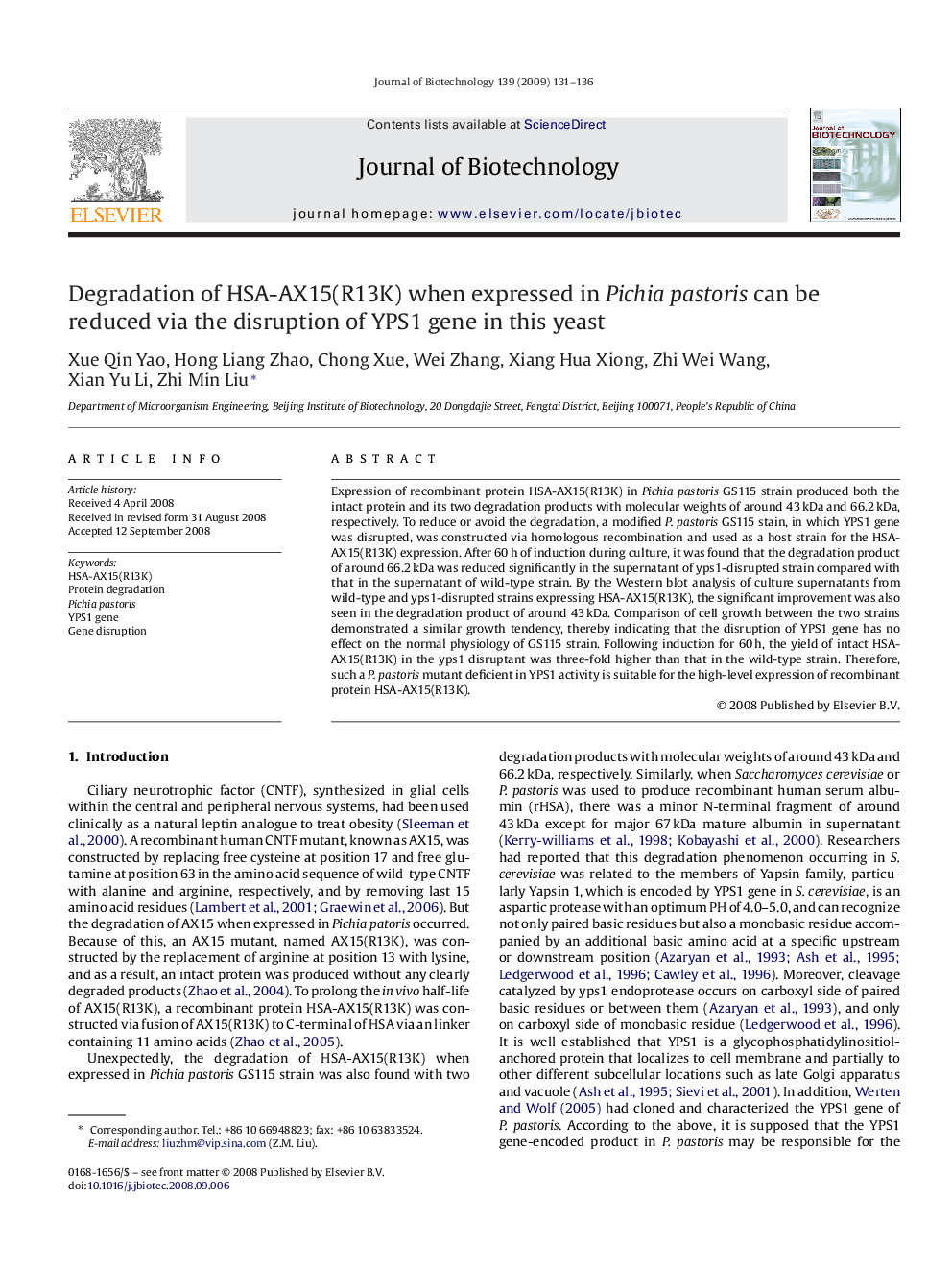| کد مقاله | کد نشریه | سال انتشار | مقاله انگلیسی | نسخه تمام متن |
|---|---|---|---|---|
| 24882 | 43543 | 2009 | 6 صفحه PDF | دانلود رایگان |

Expression of recombinant protein HSA-AX15(R13K) in Pichia pastoris GS115 strain produced both the intact protein and its two degradation products with molecular weights of around 43 kDa and 66.2 kDa, respectively. To reduce or avoid the degradation, a modified P. pastoris GS115 stain, in which YPS1 gene was disrupted, was constructed via homologous recombination and used as a host strain for the HSA-AX15(R13K) expression. After 60 h of induction during culture, it was found that the degradation product of around 66.2 kDa was reduced significantly in the supernatant of yps1-disrupted strain compared with that in the supernatant of wild-type strain. By the Western blot analysis of culture supernatants from wild-type and yps1-disrupted strains expressing HSA-AX15(R13K), the significant improvement was also seen in the degradation product of around 43 kDa. Comparison of cell growth between the two strains demonstrated a similar growth tendency, thereby indicating that the disruption of YPS1 gene has no effect on the normal physiology of GS115 strain. Following induction for 60 h, the yield of intact HSA-AX15(R13K) in the yps1 disruptant was three-fold higher than that in the wild-type strain. Therefore, such a P. pastoris mutant deficient in YPS1 activity is suitable for the high-level expression of recombinant protein HSA-AX15(R13K).
Journal: Journal of Biotechnology - Volume 139, Issue 2, 15 January 2009, Pages 131–136